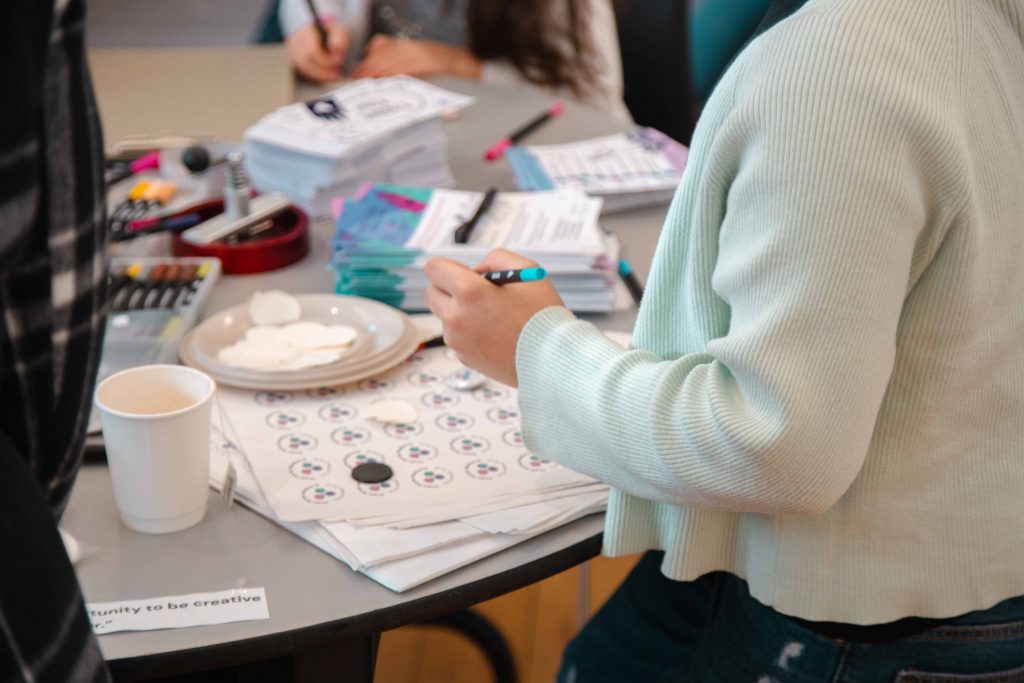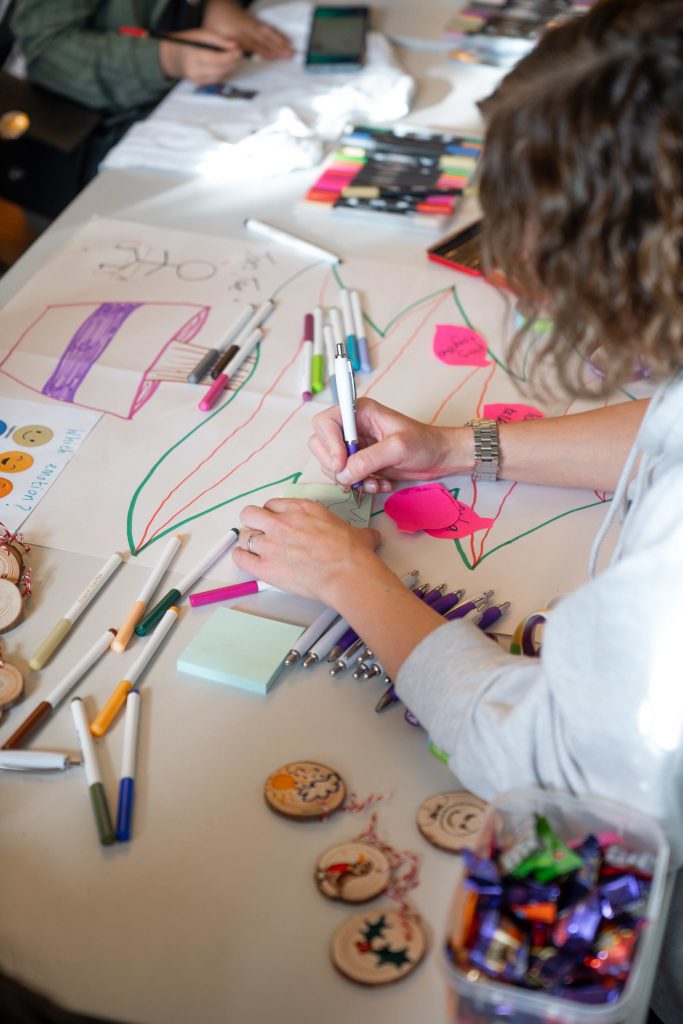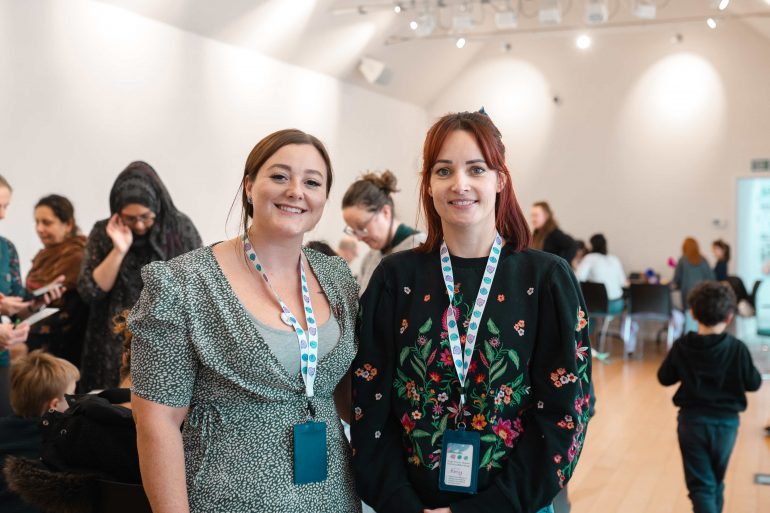Single Parents Wellbeing is an organisation dedicated to providing emotional support and mental health guidance to struggling single parents in Cardiff.
THE pressure to appear merry and bright at Christmas – when what you really feel is unseen and unheard – is a heavy burden to bear.
That’s why Amy Holland and Rachel Cule joined forces to create a social enterprise called Single Parents Wellbeing, which unites lone parents in a community and wider family.
The first single parent Christmas hits like a bomb”
Amy Holland, co-founder of Single Parents Wellbeing
The pair originally met in an online forum for single parents and eventually formed a Welsh walking group.
That was the seed for an organisation that has run for the last six years – a time over which the group has observed particular trends.

Isolation and failure, Amy explains, are feelings that are particularly prevalent for the group around Christmas time, when members begin to feel a lot more dependent on the group as their own mental health declines.
“I find every emotion feels amplified at this time of year. It feels like a time that ‘should’ be all about the traditional family unit, and I feel sad about the future I thought I was going to have and to be able to give to my daughter” said a parent involved with the group, who has chosen not to be named.
The idea of the perfect Christmas begins to seem like a perverse image of what they feel is missing; the cosy family in their matching pyjamas, the elaborate meals and the hundreds of perfect gifts.
“I’m going to my daughter’s first nativity alone, and that feels sad to not be able to share it” said another anonymous member.
Amy describes a stigma surrounding the idea of ‘family’ that helps create these anxieties in single parents. There is a sense of failure – that in some way single parents have broken something.
“The first single parent Christmas hits you like a bomb,” she said.
That’s when members start to see all the things that they are missing, whether that be their ex-partner, their former traditions or in some cases their child. Many single parents find themselves spending the holidays alone if they are in a co-parenting situation.
Both the physical and emotional isolation leads to what Amy described as the “get on with it mentality”, in which single parents feel such a need to prove themselves that they resist reaching out for help.
Amy says the cost of living crisis is also a factor this year in the decline of their members’ mental health. Single parents, despite many of them working full time, find themselves in tight financial situations and have to receive benefits as they are a sole-income household. This contributes to a common anxiety that however hard they try they are simply not enough.
“I hate Christmas because of the financial burden. Every year I end up in debt to effectively ‘keep up with the Jones’s’ and ensure my children don’t feel different to their friends.” described another anonymous parent in SPW.
This is made worse if there is a wealth disparity between co-parents; if they feel the other parent is able to create something they cannot. They feel the need to compete, not just with their former partner but with other families and this societal concept of perfection.
They will remember they were loved”
Amy
Various mental health organisations, including Mind, have spoken before about the pressure people place upon themselves to enjoy the festive season. If their mental health begins to decline it creates a cycle of guilt and depression as they begin to grow nostalgic for what they feel was a happier time.
SPW has taken this to heart and tried to come up with ways to allow people the freedom to validate their emotions and gain a new sense of perspective on what Christmas can be about.
SPW offers a variety of courses and activities to help people form new connections and friendships. The point of the organisation is to create a support network all year round so that single parents feel they have a place to turn to when things get difficult.
Amy and Rachel wanted to try different techniques to help people come to terms with their feelings, such as holding creative groups to allow parents and children to connect and express themselves in different ways.

The point of the,ir ‘Wellbeing Workshops’, for example, is to help parents explore and share their emotions in a safe space. It allows them to process their emotions with the understanding that whatever those may be, they will be accepted.
“What unites us is our feelings of grief and anger,” said Amy. “The feeling that we failed somehow and life has not gone the way we wanted to.”
Amy described her own feelings of loss during her first Christmas as a single parent that inspired her to adjust her ideas of what it meant to be perfect.
“You can make new traditions all the time,” she said.
“My first Christmas as a single parent I bought new tree ornaments for myself and my children. Now we treat ourselves to a new one every year. It’s a small, inexpensive way to make some new memories”
‘Solidarity with Single Parents’ sessions offer a variety of activities throughout December, including a Christmas dinner and tea and coffee days for people to pop into and chat.

When asked for advice for single parents this season Amy’s message was one of hope and solidarity.
“You have enough, we are enough,” she says.
“At the end of the day, your child will not remember the gifts or the food. They will remember that they were loved and that you did your best and they will be so proud of you.”
- If you or anyone you know is struggling with mental health this Christmas you can contact Single Parents Well Being or Mind.



